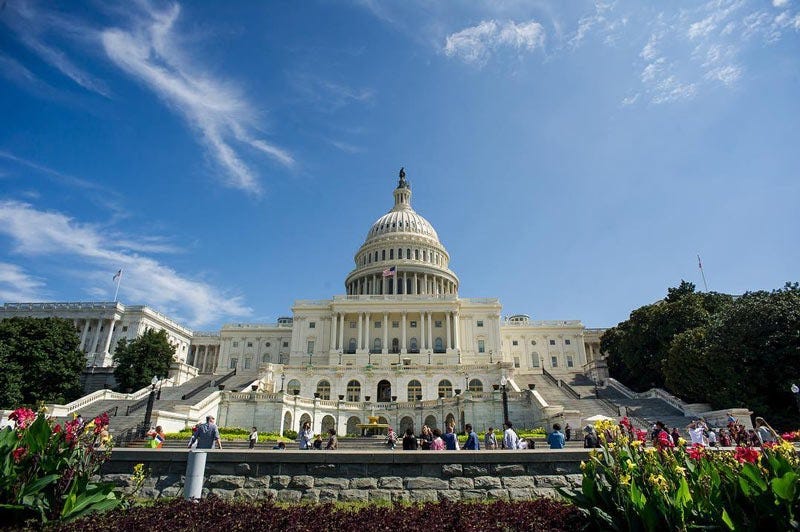America’s Next Great Civil Rights Bill
By: M Baqir Mohie El-Deen, MPAC Policy Program Manager

This past election, amidst the ongoing pandemic, Americans rushed to the polls to cast their votes in unprecedented numbers and through unprecedented means. Why did so many Americans find it vital to cast their vote during an election season that may have been detrimental to their health? The answer is simple: those who lead our nation have a direct impact on our lives and our livelihoods. Furthermore, what is a democracy without the voice of the people? In response to this record-breaking voter-turnout election, dozens of states have introduced over 250 bills in their respective capitals to disenfranchise voters in future elections. To redress the issue of voter suppression, Congress has introduced the ‘For the People Act’ (H.R. 1/S.1), which is being hailed as the greatest civil rights bill since the Civil Rights Movement itself.
Within the first month of President Biden’s inauguration, 43 states have pre-filed, carried over, or introduced a total of 253 bills, attempting to restrict voting access. The bills attempt to:
a) limit mail voting access;
b) enable more aggressive voter roll purges;
c) impose stricter voter ID requirements; and
d) slash voter registration opportunities.
These attempts are an undeniable response to the unfounded lies planted by our past president about widespread voter fraud following his defeat in the presidential election. If passed, these bills will alter future elections. Arizona currently leads the nation in proposed voter suppression legislation, with 19 voting restrictive bills, followed by Pennsylvania’s 14 restrictive policy proposals, and then with Georgia’s 11 bills. All three of these states helped cement President Biden’s electoral college win.
Other state legislators, however, are looking to empower voters. A different set of 43 states have brought forward 704 bills within the same time period with provisions that expand voting access, with New Jersey and New York leading with the numbers of bills brought forward to their state legislators. It is also promising that a significant number of these voter empowering proposals have been introduced in states with histories of voter suppression, including Texas, Mississippi, and Missouri, suggesting that there remains concerted efforts to make voting easier and empower the historically disenfranchised.
What can be done to protect voters nationwide from restrictive voting bills?
We need stronger federal legislation that protects voters nationwide from restrictive laws enacted by their state legislators. This is precisely what ‘For the People Act’ intends to achieve. The bill passed through the House of Representatives last week, and is currently waiting to be read in our Senate.
Carrying on from last year’s John Lewis Voting Rights Advancement Act, which did not pass through Congress, the ‘For the People Act’ seeks to implement transformative changes to the systematic challenges that our nation currently faces. It includes some of the following challenges and changes:
- Addresses the impediments we encounter in our elections, like long lines and overly aggressive purges that seem to exist solely in minority communities through: two weeks of early voting, automatic and same-day voter registration, restoring the ability to vote to all formerly incarcerated citizens, and allowing people that lack photo ID to vote with sworn affidavits of their identity.
- Implements structural changes addressing inequities in who can run for office by: a new small-donor matching system. The bill gives more candidates viable means to run without relying on the wealthiest contributors
What’s obstructing the ‘For the People Act’?
In order for the ‘‘For the People Act’’ to pass through the Senate, and bypass the minority party’s ability to filibuster, a super majority vote is required. Ten Republican senators are needed to vote alongside all Democrats for the act to become law, which at this moment is perceived to be unlikely.
Senate Majority Leader Chuck Schumer strongly advocated his position on the bill, stating that with this bill “everything is on the table,” asking for Republican support to help make this bill law. “We will see if our Republican friends join us. If they don’t join us, our caucus will come together and decide the appropriate action to take. Failure is not an option.”
In lieu of a super majority, there may be an alternative course of action. The Democrats can pass ‘For the People Act’ along party lines with a simple majority if they either eliminate or change the rules of the filibuster. President Biden has signaled support for filibuster reform that requires the minority party to talk on the floor in order to block legislation. This indication from President Biden suggests Democrats may not have a clean option for elimination of the filibuster outright. Minority Leader Mitch McConnell has also threatened a “scorched earth” political landscape if the Democrats eliminate the Senate filibuster process altogether. This places the ball at the hands of the Democrats in deciding how to strategize for the passing of this bill. At one end, they are in control of the Senate, however their razor-thin majority may cease to end in the midterm elections, so whatever changes they make to the filibuster will have an effect on their ability to obstruct bills from passing in the future.
The 2020 presidential election has revealed the stark contrast in our nation. A nation with an administration in which American Muslims hold some of the highest ranks in history, compromising the most diverse presidential cabinet, all within the same year of insurrection, and the unprecedented moment a confederate flag paraded through the halls of Congress. This symbolism greatly reflects the problem that our nation is facing today — the proverbial fork-in-the-road moment: should America further empower the voice of the people, or should it muzzle the voices of many and continue disenfranchising millions of voters? Congress has the ability to empower those who have been historically disenfranchised.
The question remains: Does the 117th Congress have the political will?